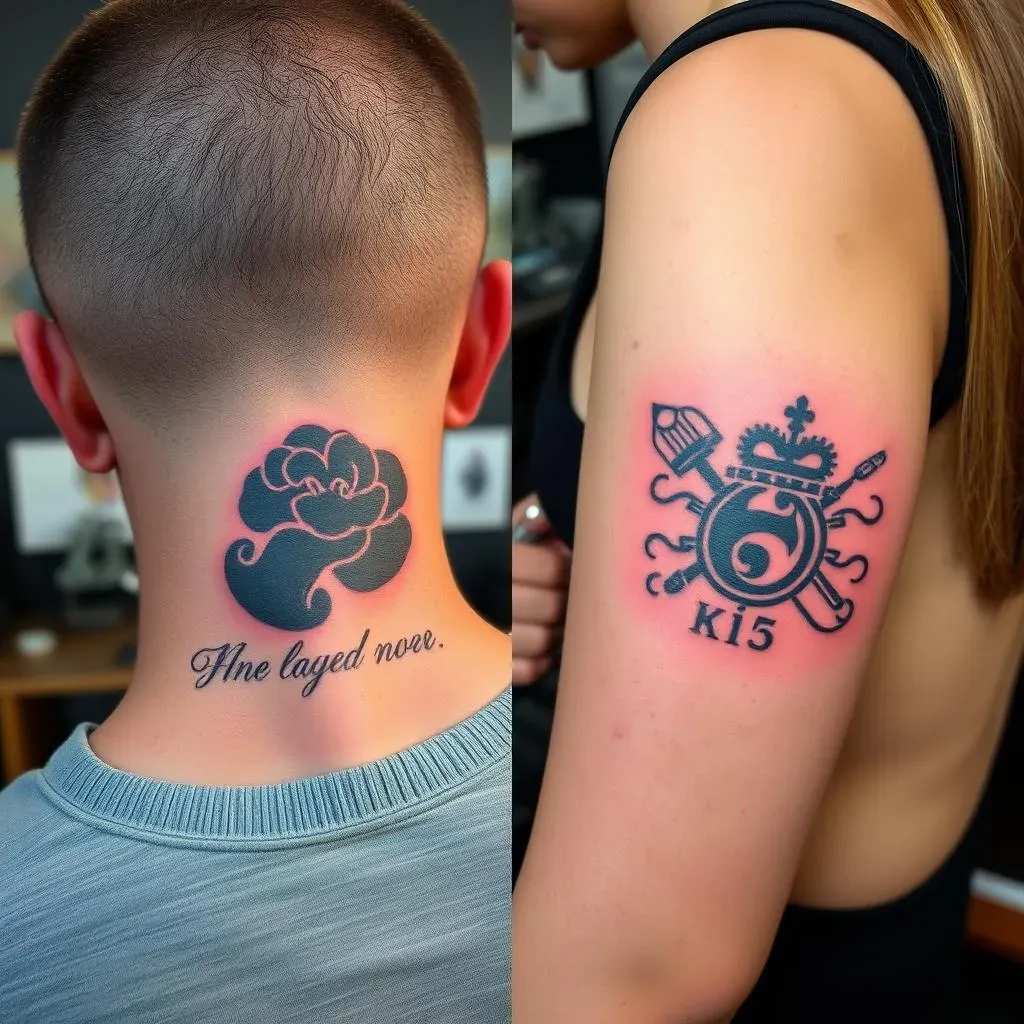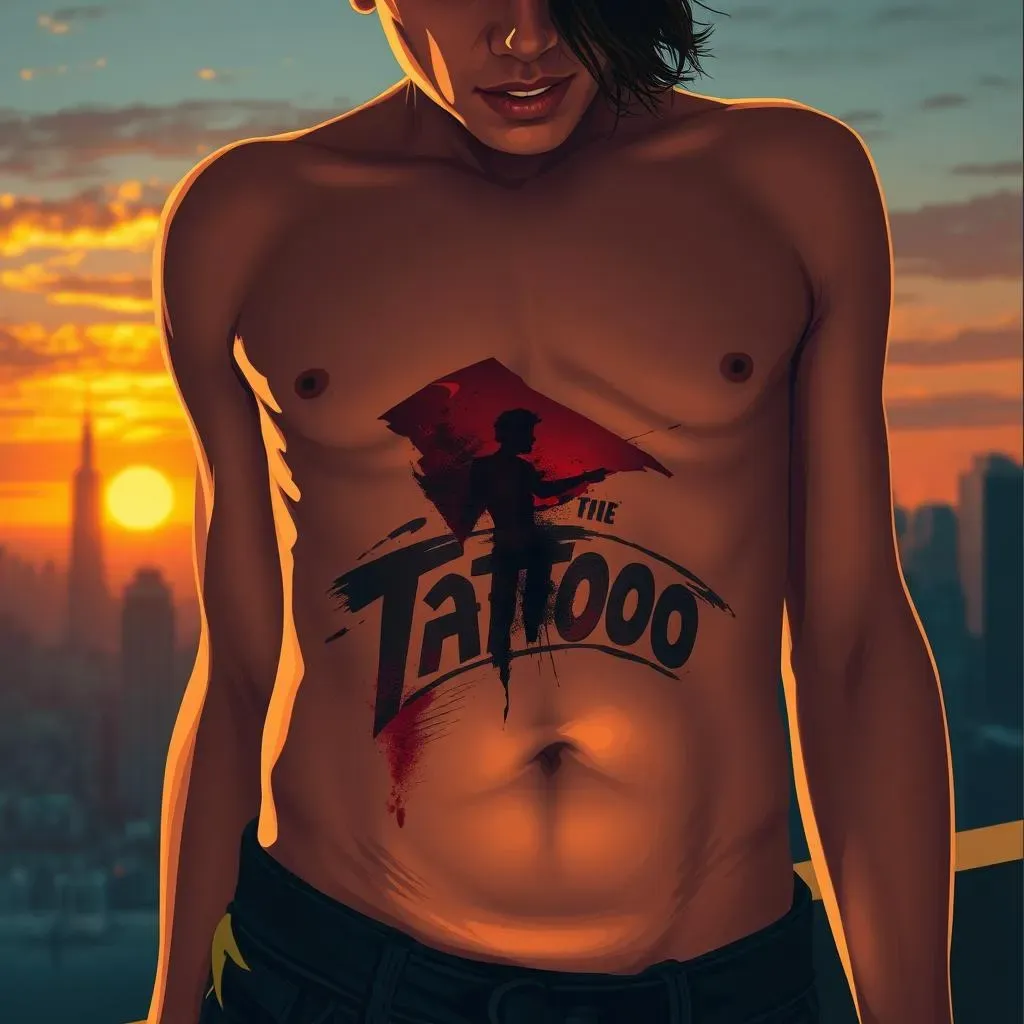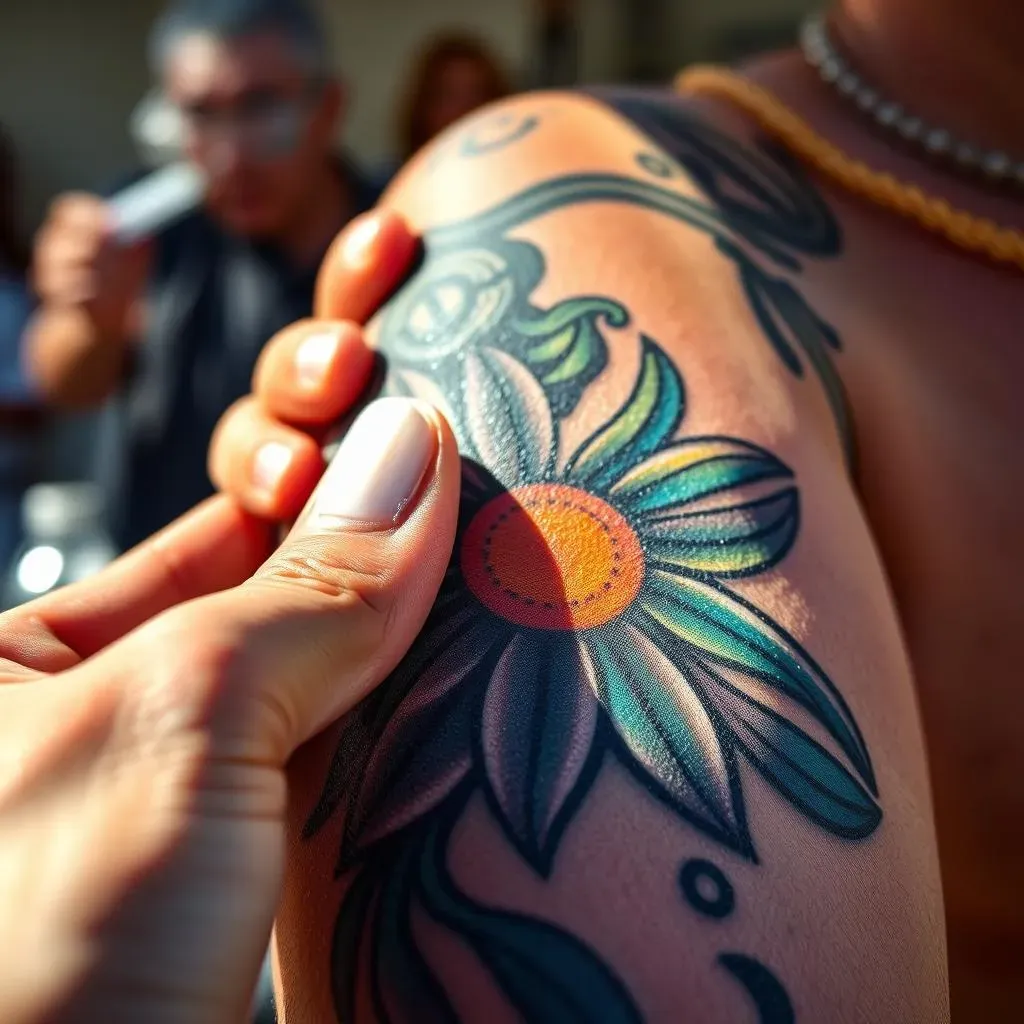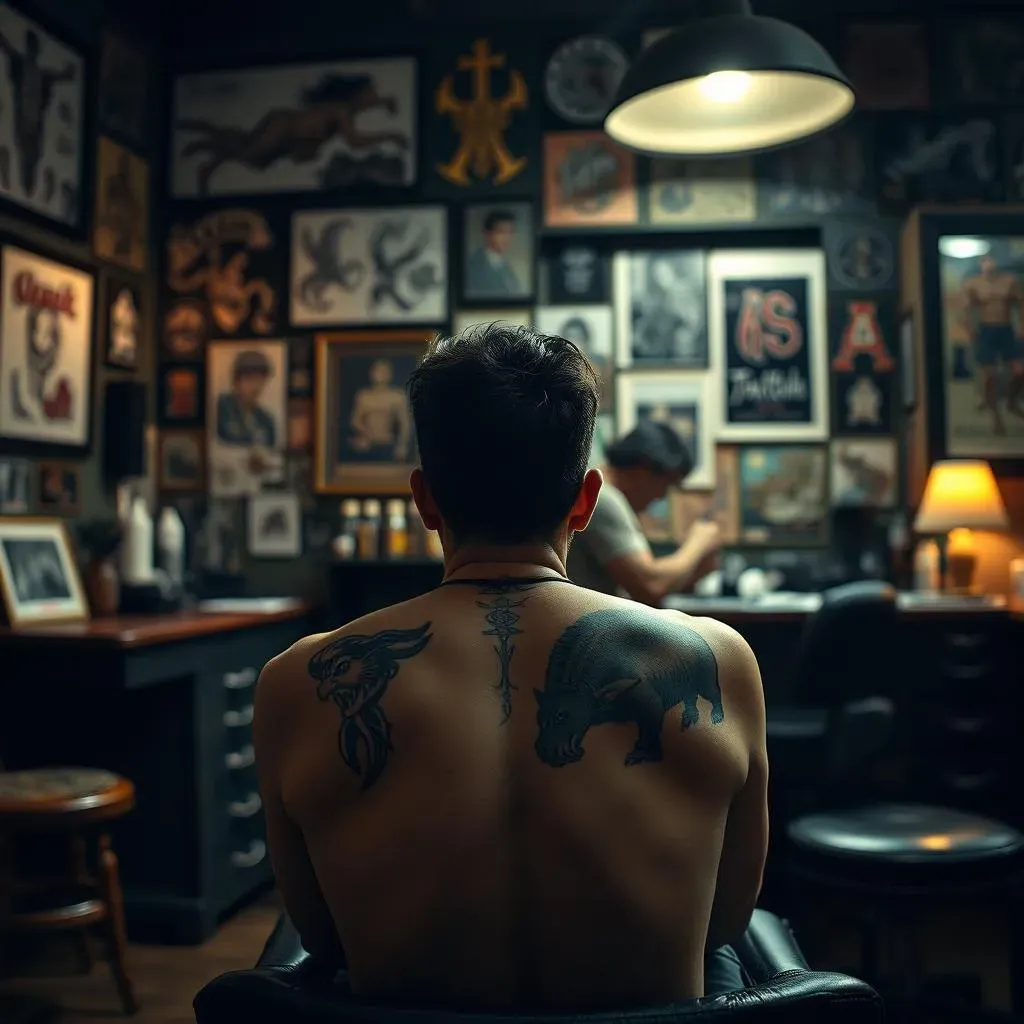Table of Contents
Thinking about getting a tattoo? Awesome! Body art is a fantastic way to express yourself, but let's be real: some tattoo ideas are better left on the drawing board. Tattoo regret is a very real thing, and trust me, laser removal is no fun. So, before you commit to that ink, let's talk about what tattoo designs to avoid.
Why Listen to Tattoo Artists About Designs to Avoid?
Why Listen to Tattoo Artists About Designs to Avoid?
Experience Speaks Volumes
Think of tattoo artists as seasoned travelers in the world of ink. They've seen countless designs come to life, witnessed how they age, and dealt with the aftermath of regrettable choices. They aren't just artists; they're also historians, psychologists, and sometimes, even therapists for their clients. Their insights come from years of hands-on experience, observing trends, and understanding how different inks and styles hold up over time.
Unlike your friends or that cool design you saw on Pinterest, tattoo artists offer a professional perspective grounded in reality. They know what looks good now versus what will look good (or not so good) in 5, 10, or even 20 years. They understand the nuances of skin types, ink behavior, and how placement affects the longevity of a tattoo. This knowledge is invaluable when making a decision that's meant to last a lifetime.
Avoiding Future Regrets and Costly Fixes
Let's face it: tattoo removal is expensive, painful, and time-consuming. And while cover-ups are an option, they can be limiting and may not always achieve the desired result. Listening to tattoo artists upfront can save you from these headaches down the road. They can steer you away from designs that are prone to fading, blurring, or simply becoming outdated.
Moreover, a good tattoo artist will prioritize your long-term satisfaction over a quick buck. They'll be honest about whether a particular design is a good fit for your body, your lifestyle, and your personal style. They'll offer suggestions for modifications or alternatives that will ensure you end up with a tattoo you'll love for years to come. It's like having a trusted advisor guiding you through a permanent decision – definitely worth listening to!
Top Tattoo Designs to Avoid and Why They're Problematic
Top Tattoo Designs to Avoid and Why They're Problematic
Trendy But Fleeting: The Ephemeral Nature of Fads
Tattoos based on current trends are a major culprit when it comes to regret. Remember when everyone was getting tribal armbands in the 90s? Or infinity symbols with feathers a few years back? These designs might seem cool in the moment, but trends fade, and what's fashionable today can quickly become dated and, well, a bit cringe-worthy. Think about it: will you really love that TikTok-inspired design in ten years? Probably not. It's always better to opt for something timeless and personal rather than chasing the latest fad.
Celebrity-inspired tattoos also fall into this category. While it's perfectly fine to admire a celebrity, permanently etching their likeness or a quote of theirs onto your body is a big commitment. Celebrities' images and public opinions change, and you might find yourself regretting that tribute down the line. Choose designs that reflect your own values and experiences, not someone else's.
The Perils of Small and Simple: Why Size Matters
Tiny, delicate tattoos might seem appealing, especially for first-timers, but they often don't age well. Fine lines tend to blur over time as the ink spreads beneath the skin, turning a crisp design into a muddy blob. This is especially true for tattoos with intricate details or light colors. While advancements in tattooing techniques have improved ink quality and application, the natural aging process of the skin will always affect the appearance of a tattoo.
Similarly, overly simplistic designs can lack visual interest and fail to capture the essence of what you're trying to represent. A single, tiny heart on your wrist might seem cute now, but it might not hold the same meaning or impact years later. Consider adding more detail, dimension, or context to your design to make it more meaningful and visually appealing over the long term.
Problematic Placements: Areas Prone to Fading and Distortion
Where you put your tattoo is just as important as the design itself. Certain areas of the body are more prone to fading, stretching, and distortion due to sun exposure, friction, and skin elasticity. Fingers, hands, feet, and inner lips are notorious for fading quickly. Areas that experience significant weight fluctuations, like the stomach or upper arms, can cause the tattoo to stretch and distort over time.
Joints, such as elbows and knees, can also be problematic, as the constant movement can cause the ink to break down and fade. Ribcage tattoos can be painful and prone to distortion due to breathing and weight changes. It's crucial to discuss placement options with your tattoo artist and consider how the design will hold up over time in different areas of your body.
Factors Beyond Design: Considerations for Lasting Tattoos
Factors Beyond Design: Considerations for Lasting Tattoos
Choosing the Right Artist: Skill and Experience Matter
A killer design is only half the battle. The artist you choose plays a HUGE role in how your tattoo looks now and how it holds up over time. Look for an artist with a solid portfolio showcasing clean lines, consistent shading, and a mastery of the style you're after. Don't be afraid to ask questions about their experience, the types of inks they use, and their sterilization practices. A reputable artist will be happy to answer your questions and put your mind at ease. Remember, you're paying for their expertise, so choose wisely!
Beyond skill, consider the artist's specialization. Not all artists are created equal. Some excel at fine-line work, while others are masters of bold, traditional designs. Find an artist whose style aligns with your vision. Trying to force an artist to work outside their comfort zone can lead to less-than-stellar results. It's better to wait for the right artist than to settle for someone who isn't the best fit for your project.
Skin Type and Aftercare: Taking Care of Your Investment
Your skin is the canvas, and its condition directly impacts the appearance and longevity of your tattoo. Dry skin can cause ink to fade and blur more quickly, so it's essential to keep your skin hydrated, especially in the weeks leading up to your appointment. Similarly, sun exposure can wreak havoc on your tattoo, causing the colors to fade and the lines to become less defined. Always apply sunscreen to your tattoo, even on cloudy days, to protect it from harmful UV rays.
Proper aftercare is crucial for ensuring your tattoo heals properly and looks its best. Follow your artist's instructions carefully, and resist the urge to pick or scratch at the healing tattoo. Keep the area clean and moisturized, and avoid prolonged exposure to water. The healing process can take several weeks, so be patient and diligent in your aftercare routine. Think of it as nurturing a delicate piece of art – your body deserves the best care!
Aftercare Tip | Why It Matters |
|---|---|
Keep it clean | Prevents infection and promotes healing. |
Moisturize regularly | Keeps skin hydrated and prevents scabbing. |
Avoid sun exposure | Protects ink from fading. |
Don't pick or scratch | Prevents scarring and ink loss. |
Long-Term Lifestyle Factors: How Your Habits Affect Your Ink
Believe it or not, your lifestyle can also impact the appearance of your tattoo over time. Significant weight fluctuations can cause the skin to stretch and distort, affecting the shape and clarity of your tattoo. Smoking can also contribute to premature aging of the skin, leading to fading and wrinkling. Even certain medications can affect the way your skin reacts to ink.
While you don't need to overhaul your entire life for the sake of your tattoo, being mindful of these factors can help you preserve its beauty for years to come. Maintaining a healthy weight, avoiding excessive sun exposure, and staying hydrated are all simple steps you can take to protect your investment. After all, a tattoo is a lifelong commitment, so it's worth taking care of it!
Making Smart Choices: Ensuring a Tattoo You'll Love
Making Smart Choices: Ensuring a Tattoo You'll Love
Think Long-Term: It's a Marathon, Not a Sprint
so you've dodged the trendy bullets and considered placement carefully. Now, let's zoom out and think about the big picture. A tattoo is a commitment, a permanent addition to your personal story. Before you take the plunge, ask yourself: does this design truly resonate with you? Does it reflect your values, your passions, or your experiences? Will it still hold meaning for you in 10, 20, or even 50 years? If the answer is a resounding "yes," then you're on the right track. But if you have any doubts, it's always better to pause and reconsider. Rushing into a tattoo is a surefire recipe for regret. Take your time, explore different ideas, and trust your gut. The best tattoos are the ones that tell a story, a story that you'll be proud to wear for a lifetime.
Consider consulting with your tattoo artist about the longevity of the design you want. They can offer valuable insights on how different elements will age and suggest modifications to ensure it remains a piece you will be proud to wear forever.
Personalize It: Make It Uniquely You
Forget generic flash art! Your tattoo should be as unique as you are. Instead of simply copying a design you saw online, use it as inspiration to create something truly original. Collaborate with your artist to incorporate personal elements, symbols, or imagery that reflect your individual style and experiences. Think about your hobbies, your passions, your favorite quotes, or even inside jokes that hold special meaning for you. The more personal your tattoo is, the more likely you are to cherish it for years to come.
Don't be afraid to get creative! Experiment with different styles, colors, and placements to create a tattoo that is truly one-of-a-kind. A skilled artist can help you bring your vision to life, transforming a simple idea into a stunning work of art. Remember, your body is a canvas, and your tattoo is a form of self-expression. Make it count!
- Incorporate meaningful symbols
- Use colors that resonate with you
- Choose a font that reflects your style (if applicable)
- Consider adding a personal touch that no one else has
Consult and Collaborate: Partnering with Your Artist
Your tattoo artist isn't just a technician; they're a creative partner. Don't be afraid to schedule a consultation to discuss your ideas, ask questions, and get their professional input. A good artist will listen to your vision, offer suggestions for improvements, and help you refine your design to ensure it's both visually appealing and technically sound. They can also advise you on placement, size, and color choices that will complement your body and enhance the overall impact of the tattoo.
Collaboration is key to a successful tattoo experience. Be open to your artist's suggestions, but also be assertive in expressing your own preferences. Remember, it's your body, and you have the final say. By working together, you can create a tattoo that you'll both be proud of. It's a partnership, not a dictatorship!
Making Informed Choices: A Tattoo You'll Love
Ultimately, choosing a tattoo is a deeply personal decision. However, by understanding what tattoo designs to avoid and considering the factors that contribute to a lasting and meaningful piece of art, you can significantly reduce your risk of regret. Talk to your artist, do your research, and choose a design that reflects your individuality and will stand the test of time. A well-thought-out tattoo is an investment in yourself – make it count!